
Tariffs Or No Tariffs, Evs Are Going To Win The Day
the amazing progress in battery technology .
Huge increases in energy density and even bigger declines in manufacturing costs have made batteries competitive with combustion engines for a large variety of applications. The most important of these is transportation.
At the beginning of this year, the big story about electric vehicles was that
sales were slowing down . Detractors of EVs - and there are a lot of them out there - declared that EVs are a flash in the pan, that interest is already waning, that the problems of EVs would prevent them from ever displacing internal combustion cars, that EVs will never be viable without subsidies, and so on. Essentially, the story was that
the EV revolution was over , or at least stalled indefinitely.
That narrative has now essentially collapsed. EV sales reaccelerated in the US after just a couple of months, and their market share has hit a new record high:
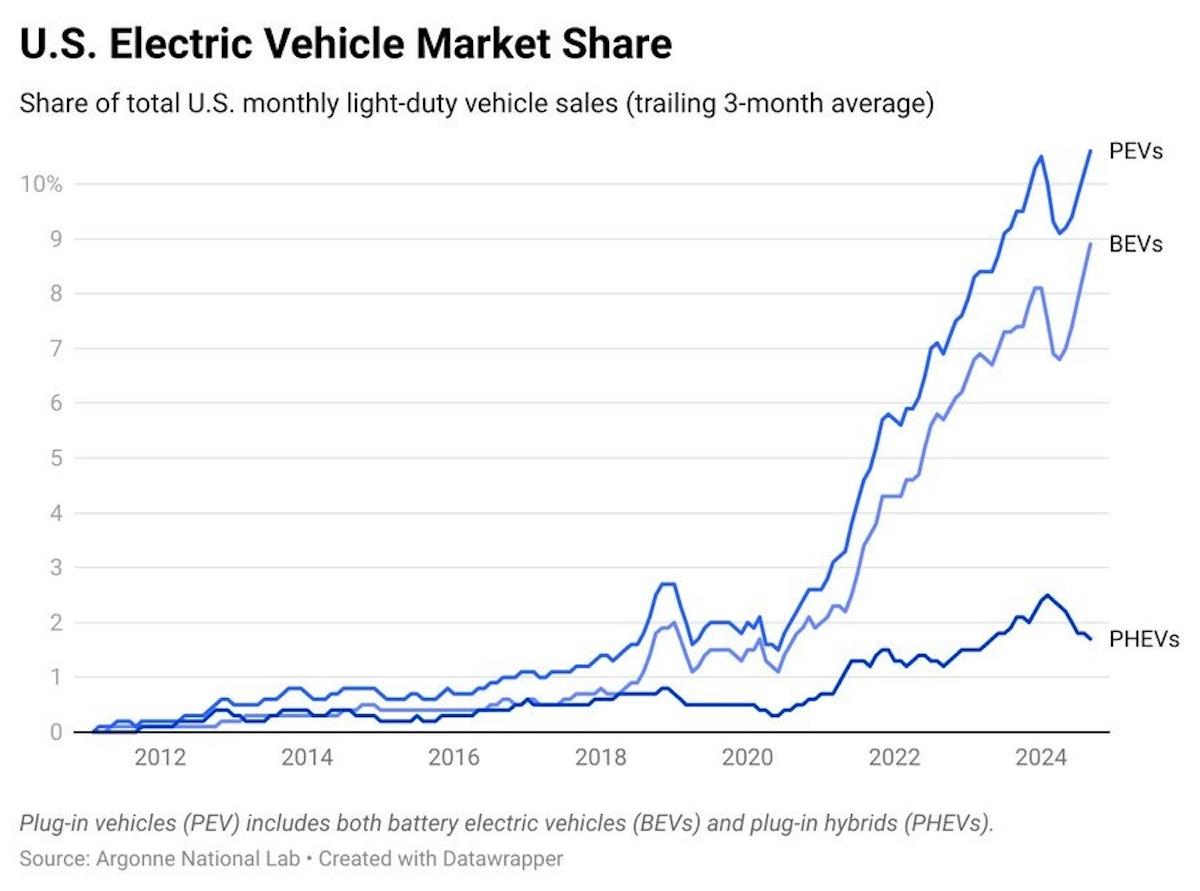
Source: Michael Thomas
And EVs continue to outsell combustion cars:
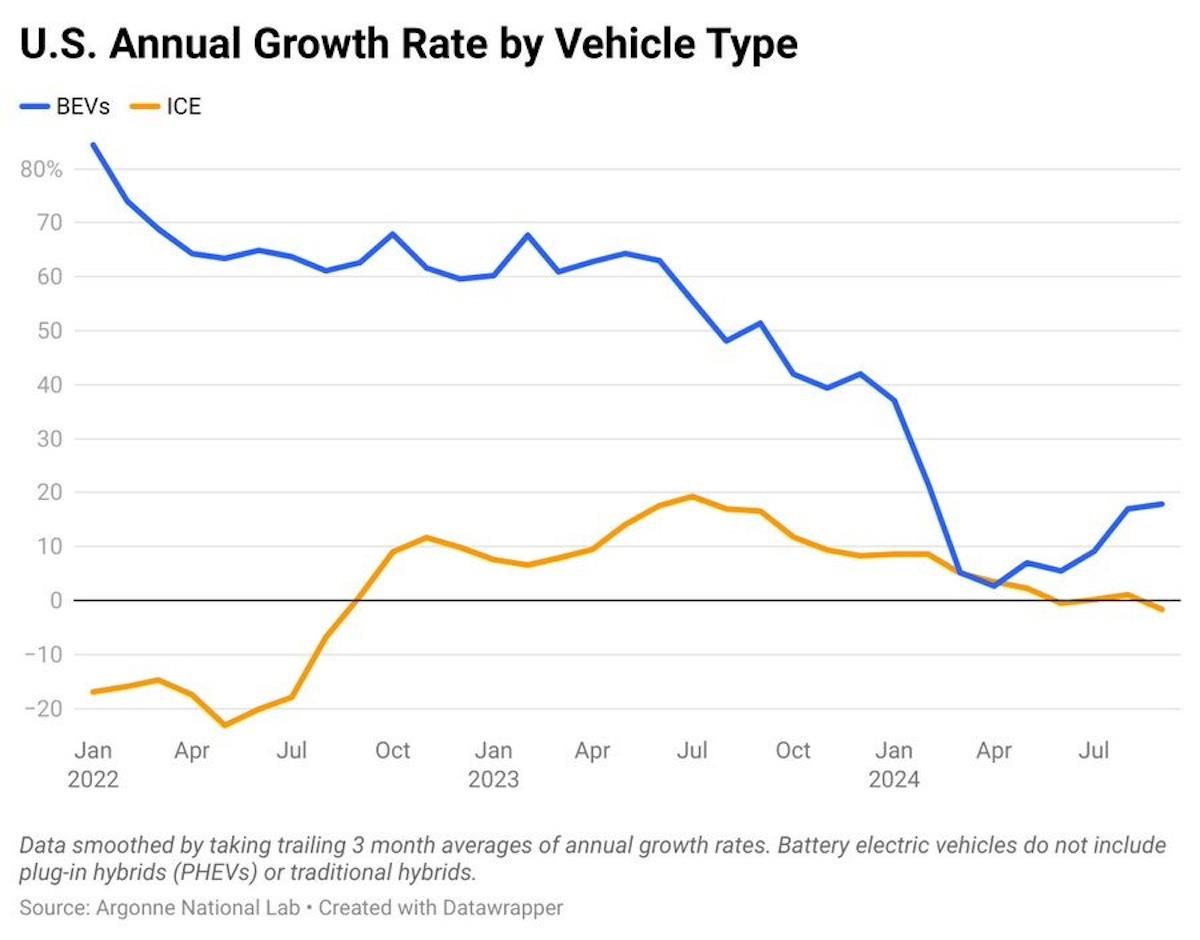
Source: Michael Thomas
Nor is there any sign of a slowdown at the global level:
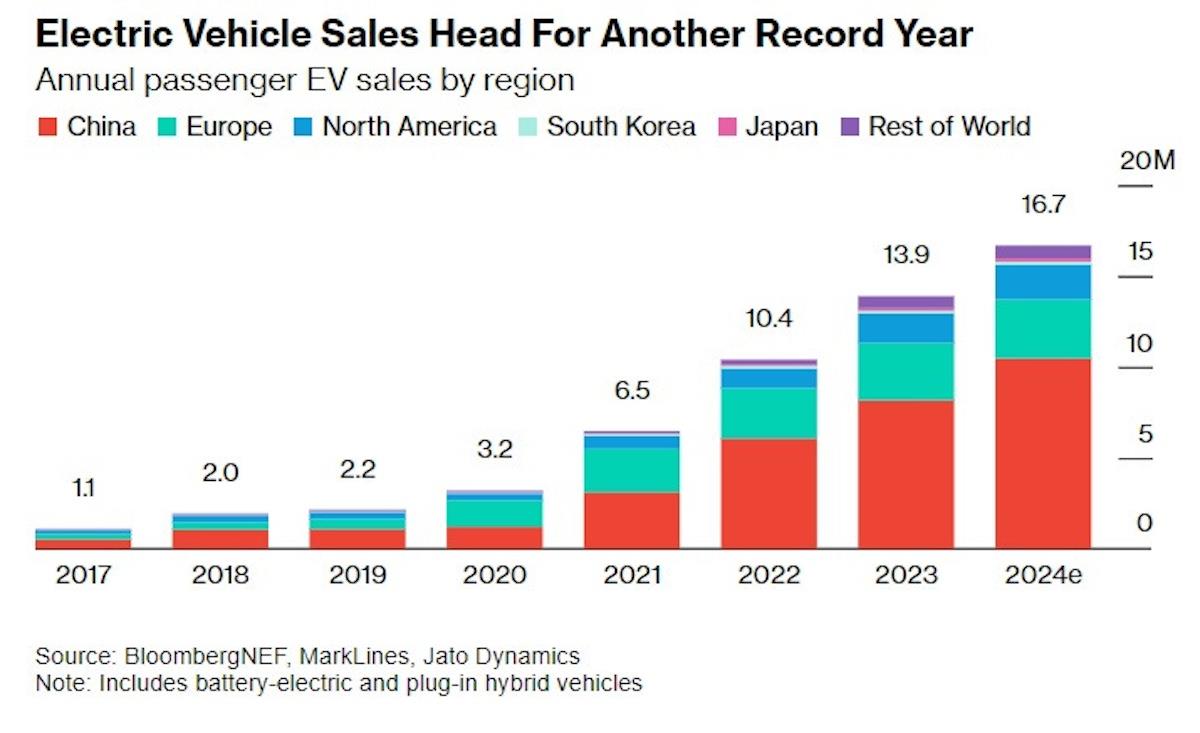
Source: BNEF via Colin Mckerracher
A number of developing countries are seeing truly spectacular growth in EV sales:
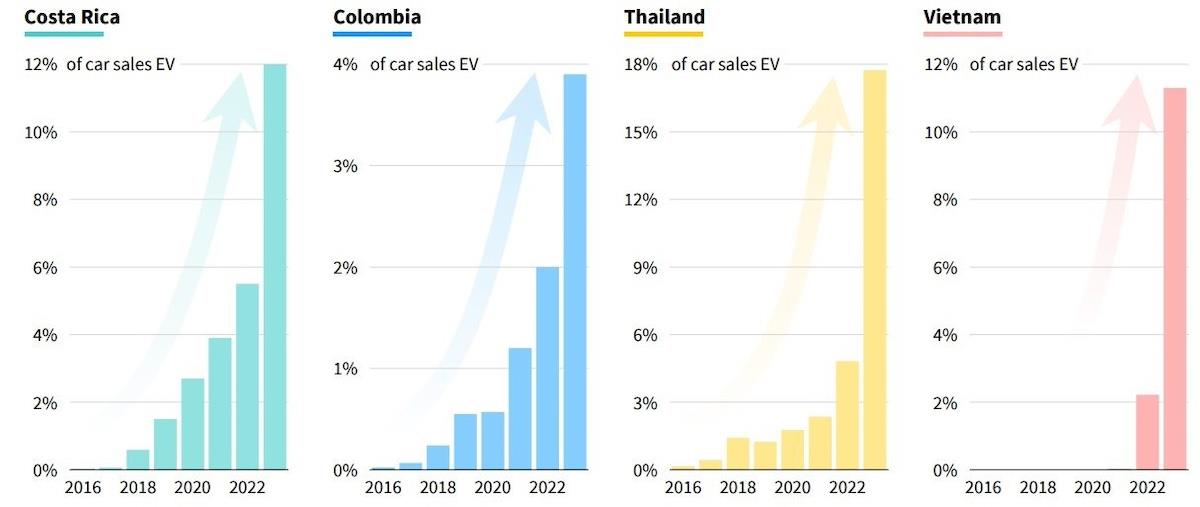
Source: RMI
So EVs are still winning. But
they haven't won yet ; only 4% of the global passenger car fleet, 23% of the bus fleet, and less than 1% of delivery trucks are electrified.
But at this point, I think the writing is on the wall.
The phenomenon of a superior technology displacing an older, inferior technology is
not uncommon , and it generally looks like the EV transition is looking now. When a new technology passes a 5% adoption rate, it almost never turns out to be inferior to what came before; with EVs, that threshold has now
been reached in dozens of countries .
In fact, we don't have to rely on trend-based forecasting to understand why EVs are just going to win. There are a number of fundamental factors that make EVs simply better than combustion vehicles. The longer time goes on, the more these inherent advantages will make themselves felt in the market.
The first of these is
price. Currently, EVs often require government subsidies in order to be price-competitive with combustion cars. But batteries are getting cheaper and cheaper as we get better and better at building them. The cheaper batteries get, the smaller the subsidies required to get people to switch to EVs.
Goldman Sachs reports
that this crucial tipping point will be reached in about two years:
Once batteries cross that tipping point, the EV revolution will take on its own momentum. It will simply be cheaper to buy an EV than a combustion car. People will gravitate toward the cheaper option, especially if it comes with other advantages. And in this case, it does.
EVs' second advantage is
convenience. Most EV owners will
almost never have to fill their cars up at a station. This is because they will charge their cars at night, in their own home garages or driveway.
The BYD Atto 3 has a range of 260 miles. Suppose you only charge your Atto 3 halfway every night, to preserve the battery life (just as you would for your phone). That's 130 miles. And let's say that just to be on the safe side, you'd stop driving at 100 miles a day.

Legal Disclaimer:
MENAFN provides the
information “as is” without warranty of any kind. We do not accept
any responsibility or liability for the accuracy, content, images,
videos, licenses, completeness, legality, or reliability of the information
contained in this article. If you have any complaints or copyright
issues related to this article, kindly contact the provider above.

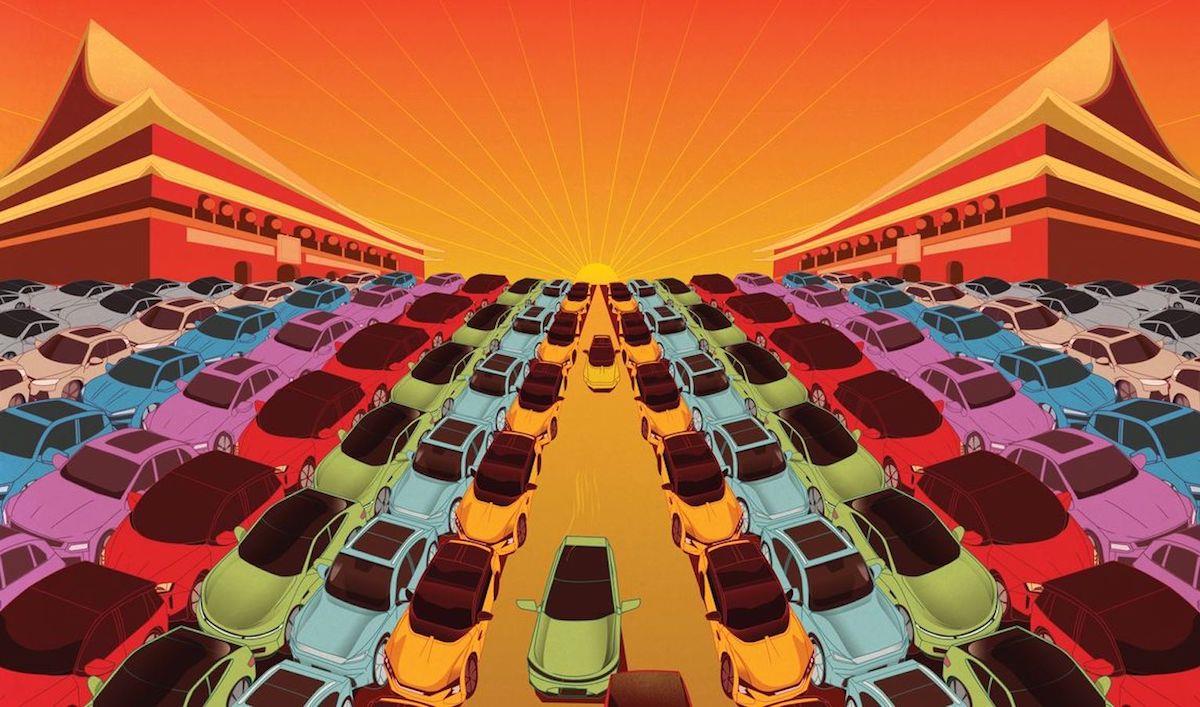




















Comments
No comment